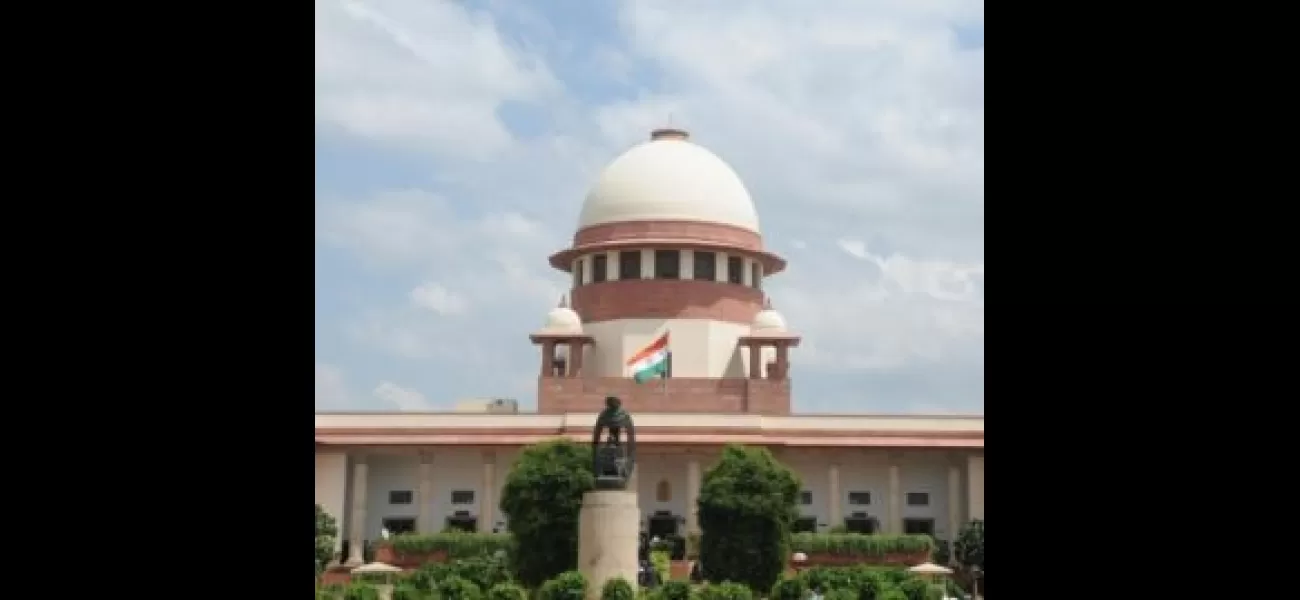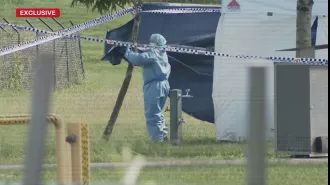The Supreme Court has asked for an explanation from the ED about the timing of Kejriwal's arrest, which comes just before the upcoming Lok Sabha elections.
SC questions timing of Kejriwal's arrest before election in money laundering case. Life and liberty deemed "exceedingly important" by court.
April 30th 2024.

The Supreme Court of India, on Tuesday, emphasized the significance of life and liberty while questioning the Enforcement Directorate (ED) about the timing of Delhi Chief Minister Arvind Kejriwal's arrest. The bench, consisting of Justices Sanjiv Khanna and Dipankar Datta, continued hearing Kejriwal's plea against his arrest in the excise policy-linked money laundering case, and posed several questions to Additional Solicitor General S V Raju, who represented the ED. The bench asked for Raju's response on Friday.
The bench noted that the section 8 of the Prevention of Money Laundering Act (PMLA) has a maximum time limit of 365 days for adjudication proceedings, and pointed out the long gap between the initiation of proceedings and the arrest. They also mentioned that the two judges will be sitting in different combinations from Wednesday and the hearing will continue on Friday.
The bench inquired, "Mr. Raju, we have some questions, which we would like you to answer, when you make your submissions." They asked if the ED can initiate criminal proceedings without any adjudicatory proceedings, considering the judgements of the court on PMLA. They also noted that there are no proceedings of attachments so far, and if there are any, the ED needs to prove the connection between the petitioner and the case.
Justice Khanna brought up the verdict on the bail plea of former deputy chief minister Manish Sisodia, who is also in custody in the excise policy scam case. He mentioned that the verdict was divided into two parts, one in favor of Sisodia and the other against him. Therefore, the bench asked the ED to clarify which part of the verdict applies to Kejriwal's case.
The third important question raised by Justice Khanna was about the ED's power of arrest, which is the reason why Kejriwal has repeatedly approached the court. He pointed out that the petitioner believes that the threshold of section 19 of PMLA puts the onus on the prosecution and not the accused. He also mentioned that under section 45 of the Act, the onus shifts on the accused when seeking bail. Section 19 empowers the ED to arrest individuals based on the material in their possession, while section 45 sets conditions for granting bail to an accused.
The bench sought clarification from Raju on how to interpret these sections and whether the threshold should be higher. They also expressed concern about the time gap between the initiation of proceedings and the repeated complaints being filed, as PMLA allows a maximum of 365 days for the investigation.
Senior advocate Abhishek Singhvi, who represented Kejriwal, referred to the statements of witnesses, approvers, and accused in the case and pointed out that only five statements named the Aam Aadmi Party chief. He also mentioned that the ED initially opposed the bail plea of the accused, but after they named Kejriwal, the agency chose not to oppose their bail plea. Singhvi also brought up previous verdicts of the apex court, which stated that the ED should act with fairness and not be vindictive.
The matter pertains to alleged corruption and money laundering in the formulation and execution of the Delhi government's now scrapped excise policy for 2021-22. The top court had issued a notice to the ED on April 15 and sought its response to Kejriwal's plea. On April 9, the high court had upheld Kejriwal's arrest, stating that there was no illegality and the ED had no other option after he repeatedly skipped summonses and refused to join the investigation.
Kejriwal, who is currently in judicial custody at Tihar jail, was arrested on March 21 in the case. The apex court had questioned his non-appearance before the ED for recording statements and asked if he could challenge his arrest on the ground of not being given the chance to provide his version. The court will continue hearing the case on Friday.
The bench noted that the section 8 of the Prevention of Money Laundering Act (PMLA) has a maximum time limit of 365 days for adjudication proceedings, and pointed out the long gap between the initiation of proceedings and the arrest. They also mentioned that the two judges will be sitting in different combinations from Wednesday and the hearing will continue on Friday.
The bench inquired, "Mr. Raju, we have some questions, which we would like you to answer, when you make your submissions." They asked if the ED can initiate criminal proceedings without any adjudicatory proceedings, considering the judgements of the court on PMLA. They also noted that there are no proceedings of attachments so far, and if there are any, the ED needs to prove the connection between the petitioner and the case.
Justice Khanna brought up the verdict on the bail plea of former deputy chief minister Manish Sisodia, who is also in custody in the excise policy scam case. He mentioned that the verdict was divided into two parts, one in favor of Sisodia and the other against him. Therefore, the bench asked the ED to clarify which part of the verdict applies to Kejriwal's case.
The third important question raised by Justice Khanna was about the ED's power of arrest, which is the reason why Kejriwal has repeatedly approached the court. He pointed out that the petitioner believes that the threshold of section 19 of PMLA puts the onus on the prosecution and not the accused. He also mentioned that under section 45 of the Act, the onus shifts on the accused when seeking bail. Section 19 empowers the ED to arrest individuals based on the material in their possession, while section 45 sets conditions for granting bail to an accused.
The bench sought clarification from Raju on how to interpret these sections and whether the threshold should be higher. They also expressed concern about the time gap between the initiation of proceedings and the repeated complaints being filed, as PMLA allows a maximum of 365 days for the investigation.
Senior advocate Abhishek Singhvi, who represented Kejriwal, referred to the statements of witnesses, approvers, and accused in the case and pointed out that only five statements named the Aam Aadmi Party chief. He also mentioned that the ED initially opposed the bail plea of the accused, but after they named Kejriwal, the agency chose not to oppose their bail plea. Singhvi also brought up previous verdicts of the apex court, which stated that the ED should act with fairness and not be vindictive.
The matter pertains to alleged corruption and money laundering in the formulation and execution of the Delhi government's now scrapped excise policy for 2021-22. The top court had issued a notice to the ED on April 15 and sought its response to Kejriwal's plea. On April 9, the high court had upheld Kejriwal's arrest, stating that there was no illegality and the ED had no other option after he repeatedly skipped summonses and refused to join the investigation.
Kejriwal, who is currently in judicial custody at Tihar jail, was arrested on March 21 in the case. The apex court had questioned his non-appearance before the ED for recording statements and asked if he could challenge his arrest on the ground of not being given the chance to provide his version. The court will continue hearing the case on Friday.
[This article has been trending online recently and has been generated with AI. Your feed is customized.]
[Generative AI is experimental.]
0
0
Submit Comment





